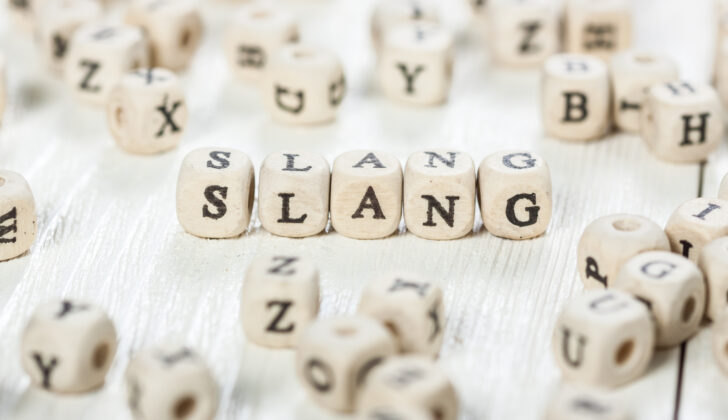Language evolves constantly, and each generation introduces its own unique slang, reflecting cultural, social, and technological changes. Modern slang, like “skibidi,” “mid,” “Ohio,” “bet,” “brat,” and “demure,” has gained popularity, especially through platforms such as TikTok, Twitter, and Instagram. But how do these terms compare to the slang of previous generations, and how far back can we trace these linguistic shifts?
In this article, we’ll dive deep into the meanings behind today’s most popular slang words, explore the slang used in previous generations dating back to George Washington’s era, and share tools you can use to decode these evolving phrases. Plus, if you ever feel left out of a conversation full of these modern terms, we’ll recommend some handy slang translator apps to keep you in the loop!
Modern Slang Definitions
Let’s begin by decoding some of today’s most frequently used slang terms.
1. Skibidi
“Skibidi” shot to fame through the viral “Skibidi Toilet” trend on TikTok, which revolves around surreal, humorous videos featuring quirky dances. The word itself doesn’t carry a strict definition, instead being used as a playful term often associated with the absurd and entertaining internet trend. This term highlights how internet culture can shape language in unpredictable ways.
2. Mid
“Mid” is a short way of saying something is “middle-of-the-road” or mediocre. Commonly used to critique entertainment—whether it’s a movie, a game, or a song—it conveys that the subject is neither good nor terrible. For instance, “That new show was mid” would mean it’s passable but nothing special. Its rise in popularity is a testament to how social media and short-form content lead to rapid assessments of pop culture.
3. Ohio
In meme culture, “Ohio” has evolved into a term synonymous with chaos or absurdity. Originally starting with humorous posts suggesting that strange or weird things always seem to happen in Ohio, it has now come to represent anything unusual. For instance, a bizarre or inexplicable event might be described as being “straight out of Ohio.”
4. Bet
“Bet” is a versatile term that can mean “okay,” “sure,” or “I agree,” and is often used to confirm plans or express approval. It can also convey a challenge or indicate confidence in a claim. If someone says, “I’ll be there at 8,” you might respond, “Bet,” meaning you accept or agree with their statement.
5. Brat
In today’s slang, a “brat” is someone who is spoiled or behaves in a demanding, entitled way. The term is often used humorously to describe someone with a bit of an attitude or in a playful context, though it can also be applied negatively to people who expect to get what they want without working for it.
6. Demure
Traditionally, “demure” refers to someone who is modest or reserved, but in modern slang, it’s sometimes used sarcastically to describe someone who is being bold or overconfident. For example, if someone posts a daring picture online, a commenter might say “How demure!” with an ironic tone, emphasizing the opposite of what the word typically means.
Slang from Previous Generations
Slang has always reflected cultural trends, and each generation has its own unique expressions. Here’s a look at the slang of previous decades and centuries, providing insight into how language has evolved over time.
1. 1990s Slang
- All That: This phrase was used to describe something or someone impressive or amazing. For example, “That new jacket is all that.”
- Booyah: A celebratory exclamation often used to express victory or excitement. “Booyah! We won!”
- As If!: A sarcastic way to express disbelief or rejection, popularized by Clueless. “You think I’m going out with him? As if!”
- Da Bomb: Something outstanding or excellent. “That concert was da bomb!”
- Fly: Something or someone that’s stylish or attractive. “You look fly in that outfit.”
2. 1980s Slang
- Gnarly: Originating from surf culture, “gnarly” describes something extreme, whether good or bad. “That wave was gnarly” or “That injury looks gnarly.”
- Rad: Short for “radical,” meaning something very cool or exciting. “That skateboard trick was rad.”
- Tubular: Another surf term meaning amazing or excellent. “That’s a tubular wave.”
- Bogus: Something fake, unfair, or disappointing. “That’s so bogus!”
- Bodacious: Something remarkable, audacious, or attractive. “She’s a bodacious woman.”
3. 1970s Slang
- Groovy: A quintessential 70s term meaning something cool or fantastic. “That music is groovy.”
- Foxy: Used to describe someone attractive. “She’s foxy.”
- Far Out: Something extraordinary or cool. “That art exhibit was far out.”
- Boogie: To dance or move energetically. “Let’s boogie down at the disco.”
- Copacetic: Everything is in order, fine, or satisfactory. “Everything is copacetic, don’t worry.”
4. 1960s Slang
- Hip: Someone who is trendy or fashionable. “That band is hip.”
- Bread: Slang for money. “I need some bread to buy those records.”
- Split: To leave or exit quickly. “Let’s split before the crowd gets here.”
- Grody: Disgusting or gross. “That food looks grody.”
- Square: A person who is old-fashioned or out of touch. “He’s such a square.”
5. 1950s Slang
- Cool: A timeless term for something fashionable or impressive. “That car is cool.”
- Daddy-O: A term of address for someone, typically a male friend. “What’s up, Daddy-O?”
- Gig: A job, especially for musicians. “I have a gig at the club tonight.”
- Ankle-biter: A playful term for a small child. “Those ankle-biters are full of energy!”
- Knuckle Sandwich: A punch in the face. “You want a knuckle sandwich?”
6. 1940s Slang
- Geezer: Refers to an old man, often used humorously. “That old geezer is always telling stories.”
- Big Cheese: Someone important or in charge. “He’s the big cheese around here.”
- Keen: Something exciting or attractive. “That’s a keen jacket you’ve got.”
- Jive: To talk nonsense or act misleadingly. “Quit jiving me!”
- Doll: A term of endearment for a woman. “She’s a real doll.”
7. 1920s Slang
- Bee’s Knees: Refers to something excellent or outstanding. “That new car is the bee’s knees.”
- Cat’s Pajamas: Another phrase for something impressive. “You’re the cat’s pajamas.”
- Hot Dawg: An exclamation of excitement or enthusiasm. “Hot dawg, what a party!”
- Speakeasy: An illegal bar during Prohibition. “We went to a speakeasy last night.”
- Bimbo: Originally used for a tough guy, but later evolved to refer to a less intelligent woman. “That bimbo doesn’t know what she’s talking about.”
8. 1770s Slang (George Washington’s Era)
- Dandy: A man overly concerned with his appearance and fashion. “He’s such a dandy.”
- Fop: Another term for a man overly concerned with his looks. “He’s a real fop.”
- Quidnunc: Someone who loves gossip or always seeks out the latest news. “That quidnunc can’t keep a secret.”
- Bespoke: Refers to something custom-made, especially clothing. “He’s wearing a bespoke suit.”
The Evolution of Slang Over Time
Slang is more than just a playful use of language—it reflects cultural changes, attitudes, and even technological advancements. While today’s slang is shaped by social media platforms like TikTok and Instagram, previous generations spread their slang through music, movies, and even local subcultures. Despite differences, the purpose of slang remains the same: to create a sense of belonging within a group and to express ideas informally and quickly.
Slang Translator Apps
Keeping up with evolving slang can be tricky, but there are several apps to help you stay in the loop:
1. Skibidi Translator
Perfect for understanding the viral “Skibidi” trend and its quirky language. It decodes phrases and keeps you on top of internet humor.
2. Urban Dictionary
The go-to resource for decoding modern slang. As a crowd-sourced dictionary, users contribute definitions of new slang terms, making it a comprehensive tool for deciphering today’s language trends.
3. Lingojam’s Slang Translator
An excellent translator tool for both modern and old slang. This app offers a variety of filters to translate slang from various regions and generations.
4. Slangit
A mobile app that translates slang terms and abbreviations in real-time, especially useful for decoding text and internet slang.
Slang will continue to evolve as new technologies and cultural shifts emerge. Whether you’re struggling to keep up with the “Skibidi” trend or wondering how “Ohio” became the symbol of chaos, staying updated on modern slang—and how it connects to the past—keeps you connected to the ever-changing world of language.












